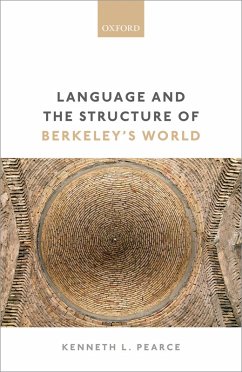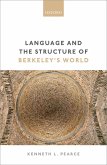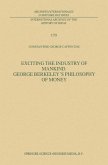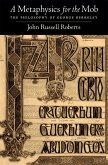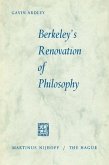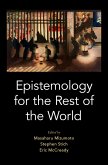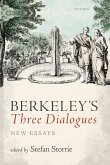According to George Berkeley (1685-1753), there is fundamentally nothing in the world but minds and their ideas. Ideas are understood as pure phenomenal 'feels' which are momentarily had by a single perceiver, then vanish. Surprisingly, Berkeley tries to sell this idealistic philosophical system as a defense of common-sense and an aid to science. However, both common-sense and Newtonian science take the perceived world to be highly structured in a way that Berkeley's system does not appear to allow. Kenneth L. Pearce argues that Berkeley's solution to this problem lies in his innovative philosophy of language. The solution works at two levels. At the first level, it is by means of our conventions for the use of physical object talk that we impose structure on the world. At a deeper level, the orderliness of the world is explained by the fact that, according to Berkeley, the world itself is a discourse 'spoken' by God - the world is literally an object of linguistic interpretation. The structure that our physical object talk - in common-sense and in Newtonian physics - aims to capture is the grammatical structure of this divine discourse. This approach yields surprising consequences for some of the most discussed issues in Berkeley's metaphysics. Most notably, it is argued that, in Berkeley's view, physical objects are neither ideas nor collections of ideas. Rather, physical objects, like forces, are mere quasi-entities brought into being by our linguistic practices.
Dieser Download kann aus rechtlichen Gründen nur mit Rechnungsadresse in A, B, BG, CY, CZ, D, DK, EW, E, FIN, F, GR, HR, H, IRL, I, LT, L, LR, M, NL, PL, P, R, S, SLO, SK ausgeliefert werden.
Hinweis: Dieser Artikel kann nur an eine deutsche Lieferadresse ausgeliefert werden.

